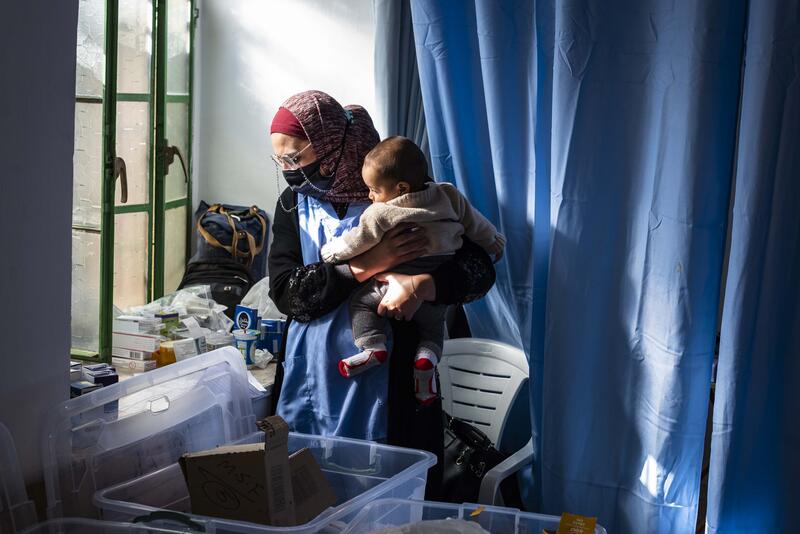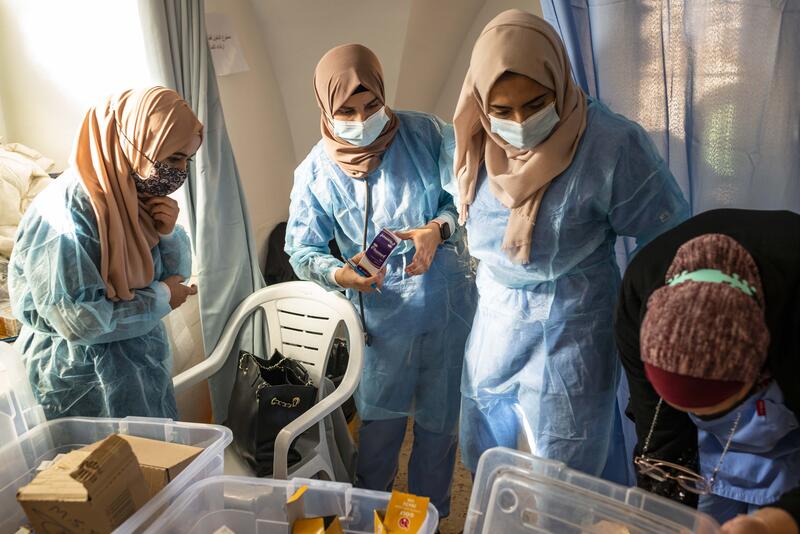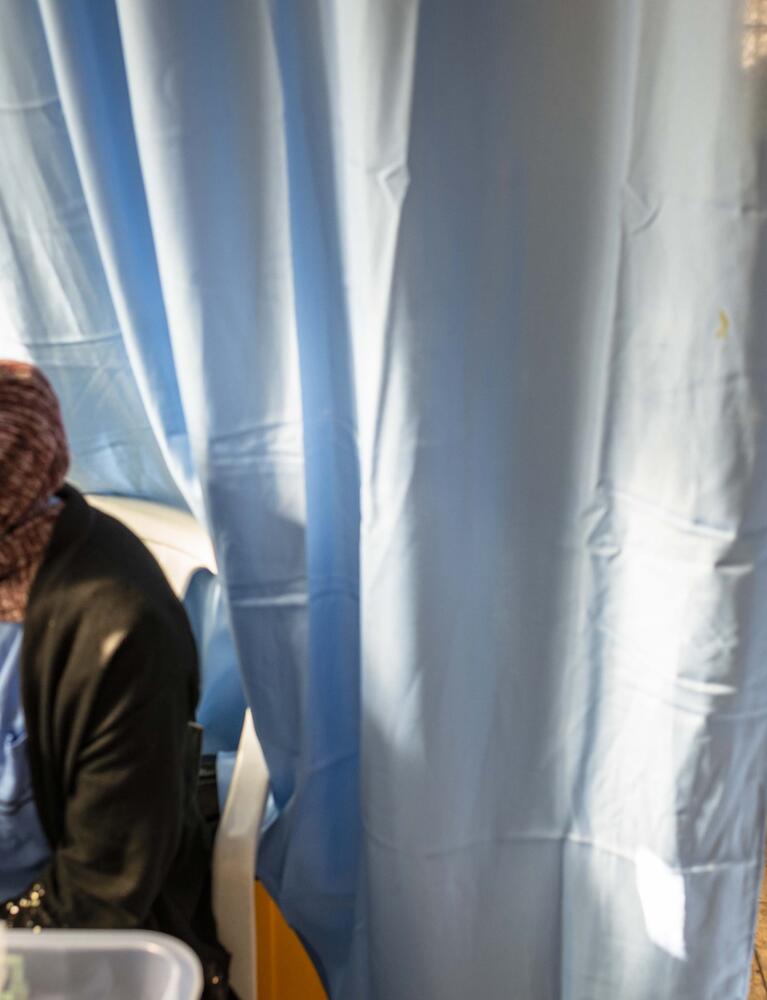In the heart of the old city of Hebron, in the West Bank, is an Israeli-controlled area known as H2. Home to 42,000 Palestinians and some 700 Israeli settlers, H2 has become a flashpoint for settler violence, while Palestinian residents’ movements are subject to restrictions that severely impede their access to healthcare and their ability to go about their lives.
“H2 is the worst representation of the daily suffering of the Palestinian people living under occupation,” says Marietta Provopoulou, MSF head of mission in Palestine. “It is simply too bad to be true. MSF does not just seek to provide health services in H2; we want to remind people that they deserve to be respected and treated with dignity.”
Barriers inside and out
H2 is one of the most restricted areas within the West Bank, with 21 permanent checkpoints operated by Israeli forces that regulate the movement of Palestinian residents and pose significant barriers to healthcare workers trying to access the area. There is one medical facility in H2 run by the Palestinian Ministry of Health for patients with acute conditions, but other than MSF, no other medical organisations operate in the area.
Our teams began working in H2 in August 2021, setting up a clinic staffed by an all-female team who provide general outpatient consultations, sexual and reproductive health services, and mental healthcare, with a focus on women and children.
Unless they are able to obtain special permission, Palestinians are forbidden from driving vehicles in H2, which has serious implications for people with disabilities, elderly people, pregnant women and those with urgent medical conditions who need to reach a doctor.

The restrictions on vehicles include emergency services such as fire trucks and ambulances. A female patient told MSF that her three young nephews, one of whom was a baby, were killed in a house fire after Israeli soldiers refused to allow fire trucks to enter H2 and tackle the blaze, despite the community’s pleas.
With limited medical services available in H2, residents must pass through checkpoints to access health facilities outside the area. When clashes occur between Palestinian residents and Israeli settlers or with the Israeli forces, the checkpoints are often closed, preventing residents from leaving or entering the area.
A 23-year-old woman who came for medical care after experiencing complications in pregnancy told our teams: “I can’t go to my doctor for regular pregnancy check-ups. Every day there are clashes near the checkpoint where I exit [H2] to take a taxi, I smell gas almost every day, and I can’t see the doctor.”
Within H2, Palestinians living close to Israeli settlers are often restricted from moving around freely even within their own neighbourhood, with access barred to certain streets and with multiple security checks in operation. Some residents of H2 have to pass through as many as four checkpoints to reach our clinic, while others are unable to access it at all.
Nowhere is safe
Palestinian adults and children in H2 are also suffering from the the psychological effects of living with daily restrictions and the daily fears of living under occupation. Many Palestinian homes are subjected to night-time incursions by Israeli forces, who temporarily take over parts of their homes. According to a UN survey, 75 per cent of Palestinian households in H2 were searched by Israeli forces between 2015 and 2018, and in one-third of these cases, a member of the family was physically assaulted. During the same period, one in every five households surveyed reported having a child arrested by Israeli forces.

“We suffer a lot in our lives; the Israeli forces and settlers raid our house so often. All the time I’m scared that my kids might be hurt by the soldiers or the settlers,” says a 41-year-old MSF patient, who has four sons and two daughters. “I live in a state of constant anxiety. When my kids tell me that they have seen soldiers or settlers nearby, I feel so scared. I can’t wait until they are back from school, to lock my door and not go out.”
Among child patients, our teams often see signs of anxiety, which affect children’s interactions with their families and with other children. Among adult patients, we often see moderate to severe mental health conditions, including depression, anxiety and difficulties in interpersonal relationships.
As a result of the access restrictions and limited healthcare services available in H2, we decided to scale up our services in October 2021. This coincided with a steep rise in the volume of patients coming to our clinics for medical care. Between August 2021 and May 2022, we treated 5,135 patients, around half of whom were children under 15. In the same period, our teams provided psychological support to 989 patients. However, there is still a need to increase medical services within H2.
“While recognising that only longer-term solutions to address access restrictions will meaningfully improve the situation for people in H2, we call for an increase in access to healthcare services in H2,” says Provopoulou.



